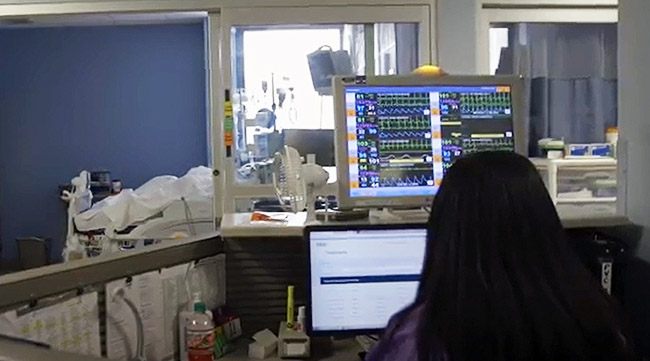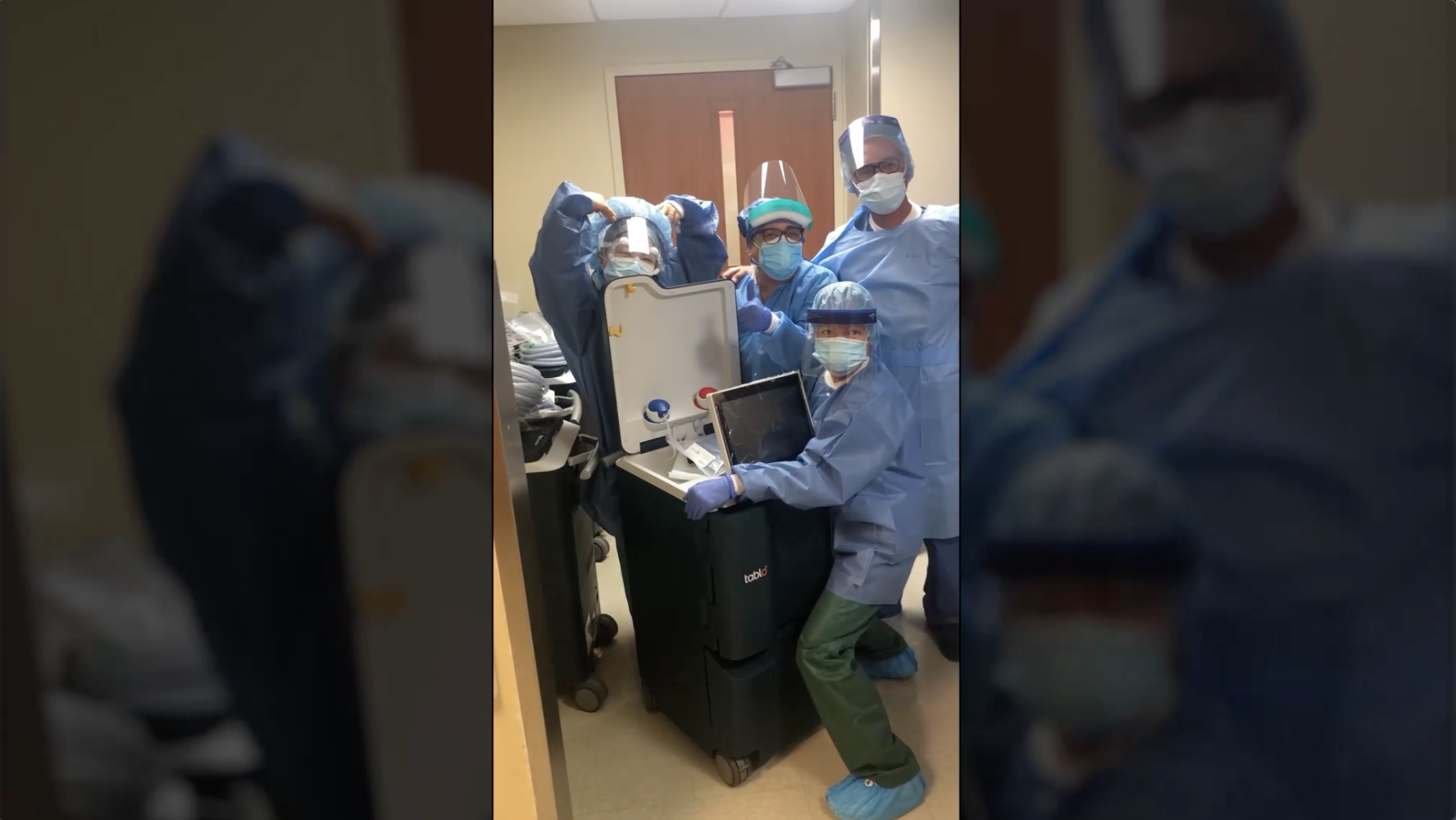A Pivotal Moment for Nephrology Nursing

Summary
A nationwide nursing shortage worsened by the pandemic has placed nephrology nursing in a challenging, but also opportune position to influence the future of this critical specialty. ANNA Executive Director Dr. Tamara Kear explains.
For Tamara Kear, PhD, RN, CNN, FAAN, executive director of the American Nephrology Nurses Association (ANNA), nephrology nursing is “the career of a lifetime.” This phrase, well-known in the ANNA community, relates to the opportunities available across the specialty, from acute to home settings, as well as the often-lifelong relationships that are built with patients and their families. And now, nephrology nursing has entered an era full of challenge and opportunity.
Critical nationwide nursing shortages exacerbated by continuing surges of COVID-19 patients are impacting care. In fact, a September 1 letter sent by the American Nurses Association to the U.S. Department of Human Services (HHS) urges the agency to declare the current and unsustainable nurse staffing shortage a national crisis. At the same time, nephrology professionals are being called upon to lead the transformation-focused goals laid out by the July 2019 Advancing American Kidney Health Initiative (AAKHI).
“The nursing shortage is our greatest struggle, but this is our opportunity to work together in finding innovative solutions.”
In Kear’s view, these issues represent a huge actionable moment for nephrology nurses. They possess the necessary education, qualifications and clinical skills to provide the most effective care to kidney disease patients in all settings, and advance AAKHI’s landmark provisions. ANNA and its membership, including over 8,500 registered nurses (RNs) and other healthcare professionals, is collaborating with other associations and nurse leaders to protect and support the specialty.
“The nursing shortage is our greatest struggle, but this is our opportunity to work together in finding innovative solutions,” she says.
Kear, a passionate 30-year clinical nurse expert and published researcher, was ANNA’s national president in 2019, during which time she directed the organization’s response and actions related to AAKHI. Prior to taking her current role in January 2020, Kear practiced as a chronic dialysis and acute care advance practice nurse. She also currently holds the position of Adjunct Associate Professor in the M. Louise Fitzpatrick College of Nursing at Villanova University.
A Critical State of Affairs
Kear says that ANNA and its nurse members participated in recent collaborative discussions with HHS and the Health Resources and Services Administration (HRSA) to find ways to address COVID-impacted nursing workforce issues such as resiliency, burnout and retention. Due to the physical, emotional and mental health toll of the ongoing public health emergency, these issues are reaching unsustainable levels.
REQUEST A DEMO
Get in touch with us! We’d love to show off Tablo and learn more about your dialysis program.
“Mental health and well-being are closely linked to quality and safety for our nephrology nurses, and so this is very concerning,” she says. “For the first time, we’re being listened to as a discipline of kidney disease providers and professionals. With about 170 other nurses participating in the discussion with HHS, we were able to voice our concerns and provide suggestions.”

“Nephrology nurse leaders want to provide the right environment with enough staffing, fair pay, break times, education and other resources, so that our nurses don’t leave the profession for self-preservation reasons,” she continues. “The opportunities lie in what it is we need to do to focus on all specialties of nursing. Opportunities also definitely lie in our collaboration with the patients we serve. If we, as an organization, can provide services to nephrology nurses, because of their relationship with patients, we will have better patient outcomes—which is ultimately our goal,” she says.
ANNA and other stakeholders are currently lobbying legislators in Washington for the critical resources, policies and innovations needed to provide safe and optimal care to kidney disease patients and to fulfill AAKHI initiatives (see ANNA’s Advocacy Action Items below).
The Role of Innovation
Along with federal initiatives, Kear describes the importance of innovations currently taking place not only in dialysis technology, but also in recruiting and retaining nurses, for the future of the specialty.
With a research background focused on nurse and patient safety, her view is that the lack of technological innovation in dialysis over many decades has interfered with the delivery of care, as well as nurse and patient satisfaction and safety. But now, out of necessity, the pandemic has accelerated changes including the advancement of telehealth and increased use of home dialysis, both of which ANNA also supports.
“I think the sky’s the limit in terms of how innovation can improve the delivery of kidney care, in inpatient, clinic and home settings.”
“Since the launch of AAKHI, we’ve seen an intensified interest in home therapies, due to the introduction of simpler, more intuitive devices designed from the perspective of the end-user. Also, keeping kidney disease patients out of the clinic reduces exposure to COVID or to the next virus that comes along,” says Kear. “Any way that we can innovate, whether it’s equipment, connected documentation systems or other improvements, will impact the delivery of care, the satisfaction and safety of care providers, and ultimately the outcome for the patient. I think the sky’s the limit in terms of how innovation can improve the delivery of kidney care, in inpatient, clinic and home settings,” she continues. Kear also feels that technological innovation has an important role in attracting nurses and other healthcare providers to the nephrology specialty.
Innovating nephrology and academic nursing curriculum is also key to sparking interest in the specialty, she says. “Hands down, in undergraduate settings there is not enough focus on kidney disease, the eighth-leading cause of death in the United States.”
Kear notes that ANNA has prioritized RN student education in their programs, including many resources such as free virtual memberships, scholarships for higher education, grants to fund clinical research and patient education, symposiums, podcasts and other tools that help students gain exposure to all that nephrology nursing has to offer.
“We’re saying ‘Hey, look at the nephrology specialty, we need you,’ and not only that, provide them with the skills and resources to move in that direction, and also to be successful once they start their first job, and beyond.”
ANNA is looking to innovate the model of how nurses traditionally enter nephrology practice, so that they will stay.
“The age-old way is that you start in an outpatient dialysis facility, you learn dialysis, and then you may move to an acute care facility. I’ve interviewed new nurses, and they’re not interested in starting in an outpatient facility. They want to start in a fast-paced acute care, ICU or emergency department setting,” says Kear. “We need to think about the options that our new nurses are exposed to, so that we can keep them. Home therapy is another career option where nursing expertise is critically needed to support our patients. ANNA’s goal is to continue to shout out what this profession is and where the opportunities lie. The opportunity to grow is now. Kidney disease patients are counting on us.”
ANNA’s Advocacy Action Items
ANNA supports many legislative priorities that it considers essential to the advancement of new treatment and prevention strategies for kidney disease patients. Current action items include:
- Robust fiscal year 2022 funding for nursing education and biomedical research, prioritizing Nursing Workforce Development Programs, the National Institute of Diabetes and Digestive and Kidney Diseases, the National Institute of Nursing Research, the Agency for Healthcare Research and Quality and KidneyX.
- The Chronic Kidney Disease Improvement in Research and Treatment Act expands kidney disease awareness and education, increases access to the Medicare Kidney Disease Education Benefit, creates an economically stable dialysis infrastructure, incentivizes innovation, increases patient access to quality performance information and expands patient choice in coverage.
- The Future Advancement of Academic Nursing (FAAN) Act authorizes HRSA to award grants to nursing schools to increase capacity to respond to public health emergencies and pandemics, and otherwise enhance nursing education programs. Awards would be prioritized for historically Black colleges and universities and other minority-serving institutions, schools located in medically underserved communities, and schools in areas with shortages of health professionals.

